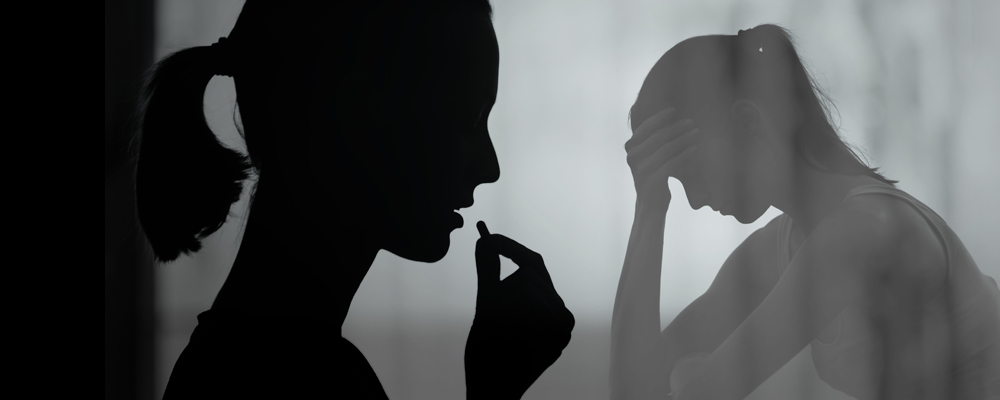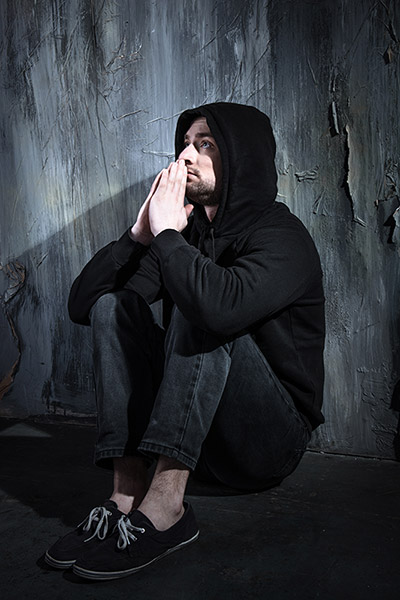Opiate Detox & Withdrawal
Breaking free from a cycle of Opiate addiction takes more than just willpower, this is due to its ability to change certain areas of your brain and alter the circuits that handle mood and reward behaviour.
Fortunately, early intervention and treatment can help you to avoid the long-term physiological and psychological effects of Opiates.
If you have an Opioid addiction or dependency (Opioids include opiates which are derived from the opioid poppy (e.g. morphine, codeine, heroin) and synthetic opioids (e.g. pethidine, methadone) your detox and withdrawal can seem daunting, especially as the withdrawal symptoms are a major reason for relapse.
Your intensity and duration of withdrawal symptoms are dependent on whether you are suffering from a dependency-led abuse of opiates or an addiction.
Understanding how the process will work and what you can anticipate will help you make the best decisions for your treatment plan.
What is a Opiate detox?
Detoxification is a readily available treatment option if you suspect a dependency or addiction to opiates and are ready to make an informed choice to become abstinent.
Detoxification involves the eradication of the opiate from your system through the cessation of use or with the prescription of an opiate substitute such as Methadone.
Because an opiate detox is quite intense, following an inpatient programme may be the safest option to detox and start your recovery from opiate addiction.

Opiate Withdrawal Symptoms
There are certain withdrawal symptoms that you may endure during and after your detox. If you have tried to withdraw from using Opiates in the past you may remember some of these and may have even experienced different ones, these sets of symptoms typically arise from the sudden withdrawal or reduction of opioids where the previous usage has been heavy and prolonged:
- Craving for drugs
- Diarrhea
- Large pupils
- Yawning
- Belly pain
- Chills and goosebumps (the origin of the phrase “cold turkey”)
- Nausea and vomiting
- Body aches
- Agitation and severe bad moods
(https://www.webmd.com/mental-health/addiction/breaking-an-addiction-to-painkillers-treatment-overvew)
FOR MORE INFORMATION CALL NOW 0333 4444 432How to Detox from Opiates Safely?
Your safety through the detox and withdrawal stages of your opiate treatment programme is important to help prevent relapse, as such certain aspects of your lifestyle will require particular attention during your opioid detoxification:
- a balanced diet
- adequate hydration
- sleep hygiene
- regular physical exercise
In a medically supervised inpatient detox programme you can receive 24/7 medical assistance to help you through an opiate detox, this is typically done privately, or by contacting your local NHS provider or visiting NHS.uk.

Speak to your GP
You can start with your GP who may be able to prescribe an alternative to the current opiate you are using, in-practice treatment, or even refer you to a private or community-based programme
Adequate assessment is needed in determining Opiate addiction and the recommended treatment plan by trained professionals.
The CAGE questionnaire is a simple screening questionnaire to identify possible addictions to alcohol and has been adapted to include drugs (CAGE-AID)
Questions you will be asked are as follows:
- Have you felt you ought to cut down on your drinking or drug use?
- Have people annoyed you by criticizing your drinking or drug use?
- Have you felt bad or guilty about your drinking or drug use?
- Have you ever had a drink or used drugs first thing in the morning to steady your nerves or to get rid of a hangover (eye-opener)?
A link for professionals to use is https://patient.info/doctor/cage-questionnaire The Opioid Risk Tool (https://www.drugabuse.gov/sites/default/files/opioidrisktool.pdf) is a more complex assessment that calculates your risk of having an Opiate Use Disorder
If a GP visit is not an option for you then you can visit the FRANK website (https://www.talktofrank.com) to find a treatment option near you.
The Frank helpline staff are available on 0300 123 6600 and can talk you through all your options.
If you require an immediate admission for treatment, there are also Charity and Private Treatment Facilities, whereas treatment through the NHS may take weeks or even months as there is a waiting list. There is a cost for some of the treatments in these facilities, some people get referrals from their local NHS.
If you are looking for more information please reach out to us, you call now on 0333 4444 432
If you are Abusing Opiate Medication
Whilst opiate use disorder can happen to anyone regardless of age, gender, religion, class, or any other factor, some factors differentiate your usage of opiates as either abuse or addiction:
- Abuse of Opiates is when you use legal or illegal substances to feel good, avoid reality, ease stress. You may take more than the recommended dose or use someone else’s prescription. Generally, you are able to stop using altogether and change your habits.
- Opiate Use Disorder is when you can’t stop, not for health, financial, emotional, or other problems for you or your loved ones. Addiction is marked by compulsive drug-seeking behavior.
Your doctor may be able to offer treatment options to reduce your usage of prescribed opiates with alternatives to help manage your pain. Addiction will need treatment that involves detox, and a longer-term therapy programme to prevent relapse.
If you are Using Heroin or Opiate Substitutes
Treatment of heroin and opiates sometimes involves the substitution of other medications such as:
- Methadone
- Buprenorphine
- Naltrexone
Unfortunately, this can leave you in an addiction cycle.
Substitution of one addictive substance with another is not a solution, detoxification and the continued abstinence from the use of opiates in conjunction with therapy have a better result in recovery.
(https://www.webmd.com/mental-health/addiction/breaking-an-addiction-to-painkillers-treatment-overvew)
Detoxing from Opiates at a Detox Facility
Detoxification is a readily available and preferred method of treatment, whilst detox is available as an outpatient treatment, inpatient treatment, residential treatment, or part of a community-based program, there are considerations when choosing how and where you would like treatment:
Outpatient Detox:
- You have not benefited from previous formal community-based detoxification
- You need medical and/or nursing care because of significant comorbid physical or mental health problems
- You require complex polydrug detoxification, for example, concurrent detoxification from alcohol or benzodiazepines
- You are experiencing significant social problems that will limit the benefit of community-based detoxification.
Residential / In-patient Detox:
- You require concurrent detox treatment for more than one substance
- You are just starting on your opiate abuse journey and could benefit significantly from a residential rehab during and after detox.
- You have other physical and mental health problems.
- If you need a high level of medical, nursing support because of severe comorbid physical and mental health problems.
- Your concurrent detox from alcohol or other drugs requires a high level of expertise.
Residential treatment is a private service offered to facilitate your treatment and whilst you may choose to go for the detox phase only, the option to continue with rehab as an in-patient is available to you.
If you are considering self-detox, you should at a minimum maintain contact with a drug service since a detox is generally offered as a tapering process using OST (if already in a maintenance program) medical supervision will be needed to ensure the tapering protocol is followed.
How Much does an Opiate Detox Cost?
Treatment can cost from £3000 to £5000 per week in a private facility.

Quitting Opiates ‘Cold Turkey’
Going ‘Cold Turkey’ is when you choose to stop a substance without any tapering off period. The term comes from the symptoms of having goosebumps in the days following your last dose.
Quitting too quickly can lead to uncomfortable withdrawal symptoms and the risk of relapse increases
Sudden detox or ‘Cold Turkey’ is not recommended if you are
- Presenting with an acute emergency problem, the primary problem will be addressed first, withdrawal symptoms will be treated and then you will be referred to further drug services as appropriate
- A pregnant woman with opiate use disorder – extra caution is needed during this process
- Suffering from a dual diagnosis of opiate use disorder and physical or psychological health problems
- In police custody or short-term remand in a corrections facility, OST will more likely be considered.
Treating the Underlying Causes of Opiate Dependency
The underlying psychological causes for your addiction – childhood trauma, dual diagnosis, etc – can be treated with ongoing therapy, either within a group setting (NA or other mutual aid organisations) or a one on one environment with your psychologist or psychiatrist.
Currently, behavioural therapies like Cognitive behavioural Therapy have proven the most effective in treating the underlying causes:
This type of therapy helps you to recognize your reactions to environmental, emotional stresses by focusing on learning new ways to cope with the stresses and triggers in your life without prescription medication
The physical dependence on opiates for pain relief can be assisted without having to keep taking the opiate.
Your chances of beating a medication addiction are better with long-term maintenance therapy that includes medications along with some form of counselling or behavioural therapy. This is known as medication-assisted treatment (MAT).

Residential Rehab
Detoxing away from home may be necessary to remove you from the environment in which you were using Opiates.
A residential or inpatient rehab programme is a private service where you would remain in residence for the duration of your treatment without access to the outside world.
Delivered in a supportive and holistic environment, residential inpatient rehab aims to identify the underlying triggers or psychological reasons for your addiction.
This is where you will meet with a therapist on a daily or weekly basis, during these sessions, the practitioner will help you look at the nature of your addiction and assess whether pre-existing mental health conditions, hereditary factors, or trauma is contributing to your dependence.
In addition, a medically managed detoxification can help with:
- Alleviating physical suffering.
- Ensuring your body’s safe transition to a toxin-free state
- Reducing mental and physical withdrawal symptoms.
- providing extra nutrients and vitamins to supplement your body
- 24/7 assistance through the detox process as well as supportive care during and after your stay to help you maintain your sobriety.
- Teaching you coping strategies to minimize and manage your cravings
- Keeping you motivated
- Getting your loved ones involved in family therapy sessions that strengthen the whole family as a tool against relapse
- Introducing you to the 12 steps programme and a community support group
A holistic treatment plan where you are considered as a whole is developed with beneficial health-oriented activities incorporated, such as, balanced diets, exercise including yoga, medication, and individualized healthcare that aims to restore your physical, mental, and spiritual connection.
Pain Management
Whilst there seems to be an expectation that pain should be eliminated, the type of injury, diagnosis, etc can affect that outcome, which may be why opiates were prescribed in the first place.
Pain Management, a combination of pharmaceutical and non-pharmaceutical treatments, is an alternative to opiate prescription since there is no evidence that opiates improve function in the long run the side effects from Opiates can be debilitating.
Used alongside non-opiate medications or on their own, physical therapy, talk therapy, meditation, hypnosis, and yoga can assist in the long-term treatment of pain.
Outpatient services & support groups
You may want to consider becoming involved in a wider addiction treatment program in conjunction with your preferred treatment plan.
Options include
- Individual & group motivational therapy
- Relapse prevention therapy
- Mutual aid such as Narcotics Anonymous (https://ukna.org/)
The NHS has options in every local area that can help you with support during treatment, NHS Choices(https://digital.nhs.uk/) maintains a searchable directory of local drug treatment services.
The Frank website (talktofrank.com) is a collaboration between the British Department of Health and the Home Office, established in 2003 to educate teenagers and adolescents about the effects of drugs.
The informative staff on call at the FRANK office can also help with any questions you have regarding treatment support and services to help you. Their number is 0300 123 6600
Family Support
There is an increasing recognition that drug misuse affects the entire family and the communities in which these families live. Private rehab facilities offer support for your family and loved ones to help them heal from addictive behaviours.
There has been a growth in carer organisations, most notably Adfam and Families Anonymous
The Adfam website (https://adfam.org.uk/help-for-families/useful-organisations) is very useful and has a list of different organisations that you can contact for support for your family through treatment.
Families Anonymous (http://famanon.org.uk/) is a self-help service based on the 12-steps plan and is aimed at helping families affected by drug use and behavioural problems.
